Healthcare is a stressful business. Those who work in healthcare face challenges every day as they provide care and help to others while sometimes ignoring their own needs. Understanding how to reduce nurse burnout in your practice can help keep everyone safe and healthy, both physically and mentally.
Burnout Defined
Nurse burnout can have three components:
- Emotional exhaustion, which happens when you’re not just physically tired but exhausted emotionally as well. When you can’t find the motivation to get up and get moving, you are suffering from emotional exhaustion.
- Depersonalization, when you begin providing an impersonal or unfeeling response to patients. Your passion has lost its spark.
- Dissatisfaction with personal achievements, including a lack of feeling competent and a loss of interest in things that are normally enjoyable and fulfilling.
The side effects of burnout can be costly, as nurse burnout can lead to poor job performance and medical mistakes. Your practice may also experience high turnover rates as a result, which is one of the major reasons you need to help reduce nurse burnout in your practice.
Nursing Burnout Interventions: What You Can Do
As a healthcare leader, you can help your nurses develop the resilience they need to reduce their stress levels and fatigue. The Joint Commission, Division of Healthcare Improvement, suggests that you can help reduce nurse burnout by:
- Providing education for your nurses on how to identify behaviors that can be caused by burnout and compassion fatigue as well as to become aware of their own stressors and triggers.
- Improving the well-being of your team by developing and implementing intervention strategies.
- Encouraging them to develop strong relationships, both within the practice and in their personal lives, a key factor in developing resilience.
- Holding regular staff meetings, encouraging your nurses to participate and provide input.
- Cultivating a culture based on altruism, as you set a good example by offering mentoring and coaching that will motivate your staff.
- Recognizing your nurses in a meaningful way, so that they feel more appreciated for their hard work.
- Optimize your practice’s workflow by incorporating a nurse triage service that will relieve some of the responsibilities from your overworked team.
What Nurses Can Do
To help reduce nurse burnout in your practice, encourage your nurses to take some steps that will promote their self-care and help them overcome their feelings of fatigue and exhaustion. Self-care and mindfulness are two very effective practices for preventing burnout. In addition, nurses should make an effort to work on some areas that can help them be healthier and happier, mentally and physically.
Develop strong interpersonal relationships. Both at work and at home, solid relationships can play a key role in combating nurse burnout. When a nurse has someone to talk to, to truly confide in, it can make a positive difference when dealing with high-stress situations.
Set boundaries. Work should not be taken home after a long day of caring for patients in the practice. That includes negative thoughts, feelings of stress, and even grievances about the work itself. Nurses should take the opportunity on the way home to clear their minds of the day’s events and focus on enjoying home, family, and friends for the rest of the evening.
Get sufficient sleep. Healthcare professionals need a restful night’s sleep every night to reduce nurse burnout. At least eight hours are necessary to improve concentration, stamina, and alertness as well as mood and motivation.
Get some exercise. Getting some exercise, even just a 30-minute walk, can help nurses feel better physically and that can help their mental health as well. Maintaining a well-balanced diet can also help nurses with their physical and mental well-being.
Take a mental health day. Even nurses need a sick day off occasionally. Sometimes it’s not for a physical illness but rather to recharge mentally. For a nurse who feels the symptoms of burnout coming on, it can help to take a day away from the stressful challenges of caring for others and care for themselves for a change.
Learn More About Nurse Burnout Prevention
At IntellaTriage, we can help you reduce nurse burnout and staff turnover as well as improve patient satisfaction in your practice. We offer the nurse triage solutions you need, tailored to your practice and your patients. Our triage nurses provide your patients with the highest quality of care, day or night. We also capture all referrals quickly, increasing your topline revenue and your patient’s healthcare outcomes.
To learn more about IntellaTriage’s revolutionary approach to nurse triage service, contact us today.
Contact Us for a Consultation
Ready to optimize your triage process? Reach out to us today for a consultation tailored to your needs. Let’s elevate your patient care together.
More From The Blog
Survey Says… Partnering With IntellaTriage Makes for Happy Nurses In today’s competitive healthcare landscape, becoming the employer of choice is a strategic advantage. And if you’re in hospice or home health, your clinicians aren’t just looking for better pay. They’re looking for better balance. According to a recent survey of IntellaTriage clients, 96% say our [...]
Recent data breaches are once again highlighting the urgency of securing protected health information (PHI). In March 2025, Yale New Haven Health System disclosed that an unauthorized third party accessed the personal data of nearly 5.6 million patients. Around the same time, Kentucky’s Cumberland County Hospital suffered a breach affecting more than 36,000 individuals, including [...]
Partners In Care - A Success Story. Partners In Care is a 5-star nonprofit provider of hospice, palliative, and home health services in Oregon. When they decided to reevaluate their after-hours care model, the goal was clear: prioritize patient care while supporting the nurses who make it all possible. Their home health and hospice nurses [...]









